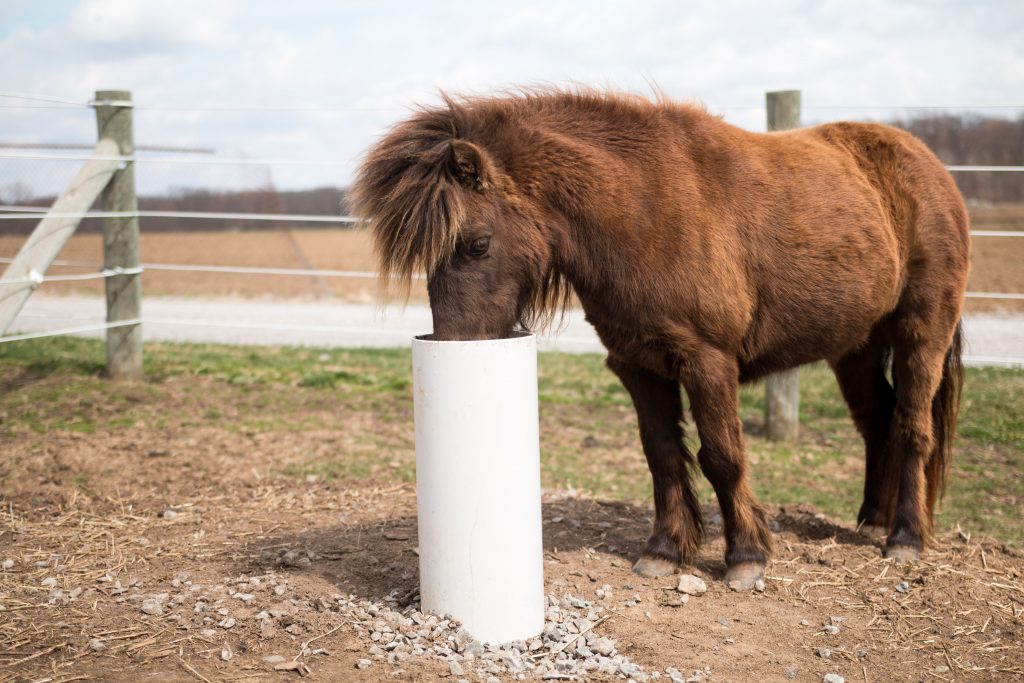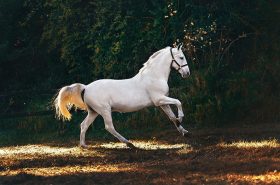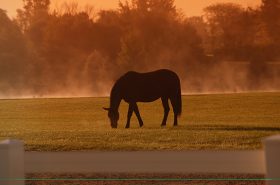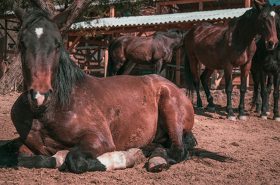The long, cold, hard months of Winter are slowly drifting past us as we embark on our plans for the Spring. February gives us the perfect opportunity to reevaluate our horse’s diets and see how they have held up during the Winter.
In many cases, horses tend to suffer some weight loss during the Winter due to maintaining a core body temperature. This is especially true if your horses are kept on the pasture or in outside corrals. This is typically no fault to the owner and is just a part of a seasonal cycle and how horses adapt to their environment.
If you feel as though your beloved horse has dropped a few pounds it’s the perfect time to adjust its diet!
Here are three ideas I recommend most:
- Try adding a highly digestible fiber source such as beet pulp to their diet.
- Feed ad lib. This translates to providing them the opportunity to munch on forage all day and night long.
- Make sure they have a readily available water supply.
Choosing an easily digestible fiber source is beneficial because it is a slow-release energy source and will not increase the horse’s behavior to act ‘dingy’ or easily excited. This means your horse will get the energy that it needs without the ‘sugar high’ behaviors that aren’t always appreciated.
Horses that are both stall kept and on pasture can both still benefit from ad lib feeding. If your horse is kept in a paddock make sure its feeder of choice is always full. It also doesn’t hurt to leave some on the ground too just to be safe. If your horse has been on pasture all Winter most likely the ground will have frozen and the forage isn’t the greatest. You can also ad lib feed your horse on pasture too. Just like horses in a paddock, make sure they have plenty of forage to munch on in their desired feeder (so the wind doesn’t blow it everywhere).

Lastly, double-check their water intake. Water is notorious for freezing during the Winter and leaving your horse without water for far too long can cause dangerous side effects and increase their risk for choking. Whether your horse is kept in a paddock or on pasture try using a heated automated watering system. This will provide you with the peace of mind that their water will not freeze.
As with anything else though it is extremely important to speak to your veterinarian before making any significant changes to your horse’s diet. If your horse has experienced significant weight loss over the winter months or during any time, I highly suggest speaking with your veterinarian as there could be a larger issue at play.
I love hearing from each and every one of you so if you have something to add to my suggestions or just want to chat, drop a comment below or message me on my personal Instagram @unbridledmama.
Love this post? We think you will like Types of Grains for Horses



